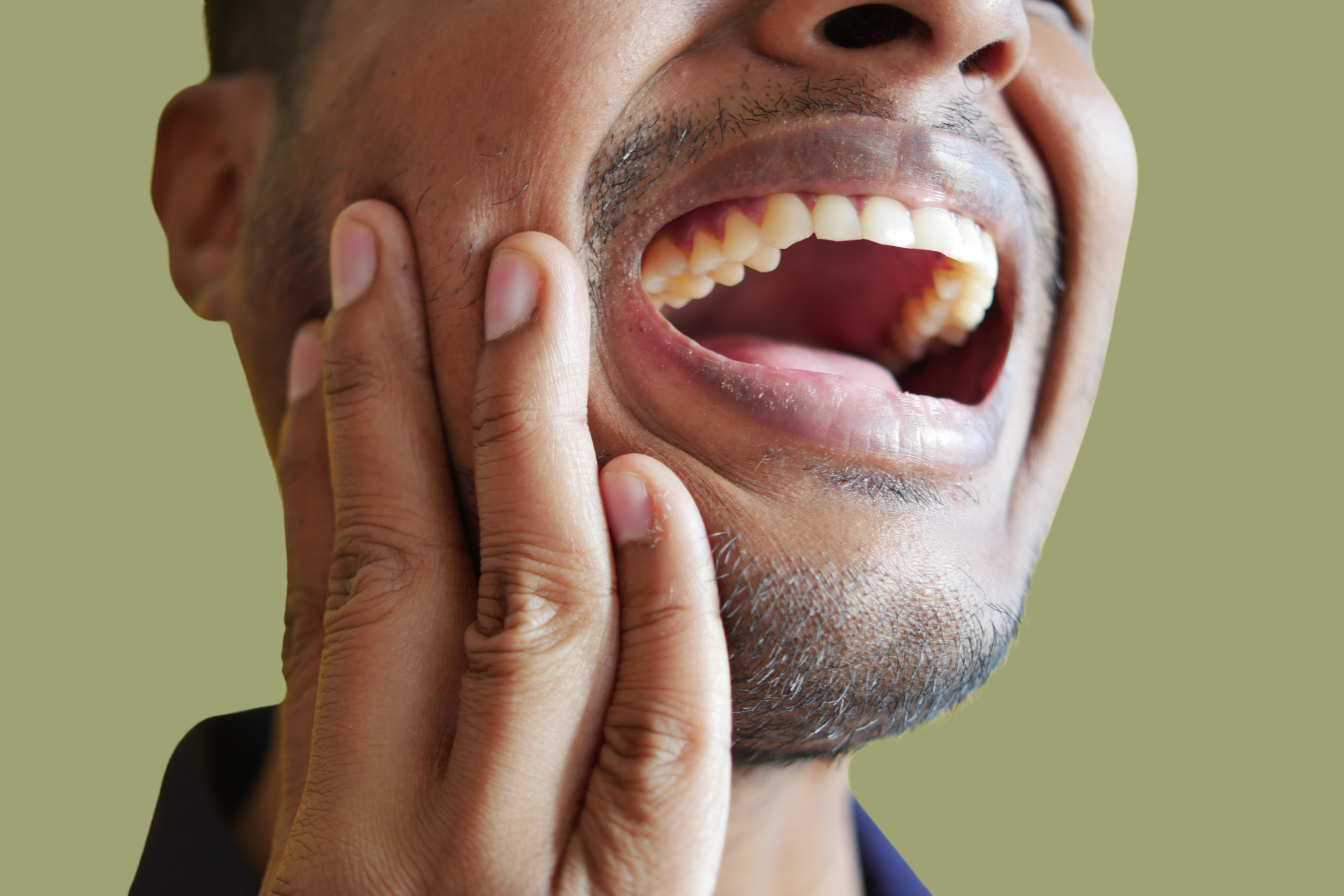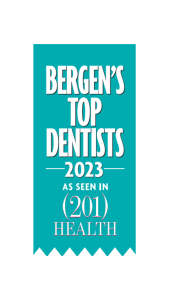Do you often experience jaw pain, clicking sounds, or difficulty chewing? If so, you might be suffering from TMJ disorder—a condition affecting the temporomandibular joint (TMJ) that connects your jaw to your skull.
Millions of people struggle with TMJ pain, but the good news is that effective TMJ treatment options exist to help relieve discomfort and restore normal jaw function.
In this guide, we’ll cover everything you need to know about TMJ disorder, including its symptoms, causes, and the best ways to find TMJ pain relief. Plus, if you’re looking for expert care, Chestnut Ridge Dental offers advanced TMJ therapy to help you live pain-free.
What is TMJ Disorder?
Temporomandibular Joint Disorder (TMD or TMJ disorder) isn’t a single disease, but rather a collection of related conditions that affect the temporomandibular joint (TMJ) and the surrounding muscles responsible for jaw movement. Think of the TMJ as a complex hinge connecting your jawbone (mandible) to your skull (temporal bone) just in front of your ear. This joint is incredibly versatile, enabling essential actions like talking, chewing, yawning, and even simple facial expressions. When this intricate system malfunctions, the resulting pain and dysfunction can significantly impact daily life.
Why is it So Common (and So Frustrating)?
The complexity of TMJ and the many factors that can influence its function make TMJ disorder a relatively common, yet often frustrating, condition to diagnose and treat. Because so many structures are involved, pinpointing the exact source of the problem can be challenging.
From Discomfort to Debilitating Pain:
Some cases of TMJ disorder may resolve on their own with conservative care, chronic TMD symptoms can significantly impact the quality of life. The pain can be persistent and debilitating, interfering with eating, sleeping, speaking, and even social interactions. This is why seeking professional TMJ treatment is crucial for managing symptoms and preventing long-term complications. Untreated TMD can lead to chronic pain, limited jaw mobility, and even changes in jaw structure over time.
Common Symptoms of TMJ Disorder
If you’re dealing with TMJ disorder, you may notice one or more of the following TMD symptoms:
- Jaw pain or tenderness (especially near the ear)
- Clicking, popping, or grinding sounds in the jaw
- Locking of the jaw in an open or closed position
- Frequent headaches or migraines
- Ear pain or ringing (tinnitus)
- Neck and shoulder pain
- Difficulty chewing or biting
- Facial pain or swelling
These symptoms can worsen over time, so early intervention is key to finding effective TMJ pain relief.
What Causes TMJ Disorder? A Multifactorial Puzzle
The frustrating truth about TMJ disorder (TMD) is that there’s rarely one single culprit. Instead, it’s usually a combination of factors that contribute to the development of TMD symptoms. Think of it like a puzzle where several pieces need to fit together to create the problem. Here’s a more detailed look at those pieces:
Jaw Misalignment (Malocclusion): The Bite Connection:
A misaligned bite, or malocclusion, is a common contributing factor. This means that your upper and lower teeth don’t come together properly when you bite. This misalignment can place undue stress on the TMJ, forcing it to work harder and potentially leading to pain, inflammation, and other TMD symptoms. Malocclusion can be caused by genetic factors, childhood habits like thumb sucking, or previous dental work.
Teeth Grinding (Bruxism): The Silent Stressor:
Bruxism, or teeth grinding and clenching, is a major trigger for many people with TMD. Often, this happens unconsciously while sleeping (nocturnal bruxism), but it can also occur during waking hours, especially during periods of stress. The constant grinding and clenching overwork the jaw muscles, leading to fatigue, pain, and inflammation in the TMJ. It can also damage teeth and contribute to headaches.
Arthritis in the TMJ: When Joints Wear Down:
Just like other joints in the body, the TMJ can be affected by arthritis. Osteoarthritis, the “wear and tear” type, can break down the cartilage in the joint, leading to pain, stiffness, and limited movement. Rheumatoid arthritis, an autoimmune disease, can also attack the TMJ, causing inflammation and damage.
Jaw Injury or Trauma: The Impact of Force:
A direct blow to the jaw, whether from an accident, fall, or sports injury, can directly damage the TMJ, its surrounding ligaments, or the muscles that control jaw movement. Even whiplash injuries can sometimes contribute to TMD. The impact can cause inflammation, dislocation of the disc within the joint, or fractures.
Stress and Muscle Tension: The Mind-Body Link:
Stress plays a significant role in TMD. When we’re stressed, we often clench our jaws, tighten our muscles, and grind our teeth. This muscle tension can put extra pressure on the TMJ, triggering or exacerbating TMD symptoms. Stress management techniques, like relaxation exercises, meditation, and yoga, can be very helpful in managing TMD.
Connective Tissue Disorders: A Genetic Predisposition:
Certain genetic conditions that affect connective tissue, like hypermobility syndrome, can make the joints more flexible and prone to dislocation or injury, increasing the risk of TMD. Other Contributing Factors: While less common, other factors can also play a role, including:
- Sleep Disorders: Sleep apnea and other sleep disturbances can be associated with teeth grinding.
- Posture: Poor posture can affect the alignment of the jaw and neck, contributing to TMD.
- Hormonal Changes: Some women experience TMD symptoms related to hormonal fluctuations.
The Importance of Identifying the Cause:
Understanding the specific factors contributing to your TMD is crucial for developing an effective treatment plan. A thorough evaluation by a qualified TMJ specialist is essential to identify the root causes of your pain and create a personalized approach to managing your condition.
Best TMJ Treatment Options for Jaw Pain Relief
If you’re experiencing TMJ pain, several treatment options can help reduce discomfort and restore normal function.
- Home Remedies for TMJ Pain Relief
- Apply heat or cold packs to the jaw for pain and inflammation reduction.
- Eat soft foods to minimize strain on the jaw.
- Avoid excessive chewing (gum, tough meats, hard foods).
- Practice relaxation techniques to reduce jaw tension.
- Oral Appliances (Mouthguards & Splints)
A custom TMJ mouthguard or splint can help prevent teeth grinding and relieve pressure on the jaw, reducing TMJ pain.
- Physical Therapy for TMJ Disorder
- Jaw exercises to improve mobility and reduce stiffness.
- Postural correction to relieve strain on the TMJ.
- Medications for TMJ Pain Relief
- NSAIDs to reduce inflammation.
- Muscle relaxants to ease jaw tension.
- Pain relievers for temporary relief.
- Botox Injections for TMJ Pain
Botox injections can help relax the jaw muscles, preventing clenching and grinding that contribute to TMJ disorder.
- TMJ Surgery (For Severe Cases)
Surgical options include:
- Arthrocentesis (fluid flushing of the joint)
- Arthroscopy (minimally invasive joint surgery)
- Open-joint surgery (for severe TMJ damage)
Most patients find relief with non-invasive treatments, but severe TMD symptoms may require surgical intervention.
How Chestnut Ridge Dental Can Help with TMJ Disorder
At Chestnut Ridge Dental, our experienced TMJ specialists provide advanced TMJ therapy tailored to each patient’s needs. Our services include:
- Comprehensive TMJ evaluations
- Custom-made night guards and splints
- Non-surgical TMJ treatments
- Expert guidance on jaw pain relief
Our team uses cutting-edge techniques to diagnose and treat TMJ disorder, ensuring the best possible outcomes for our patients.
Schedule Your TMJ Consultation Today!
Don’t let TMJ pain interfere with your daily life any longer. If you’re experiencing persistent jaw pain, headaches, or difficulty chewing, it’s time to seek expert care. Schedule an appointment with our specialists at Chestnut Ridge Dental today to get the relief you deserve!
FAQs about TMJ Disorder
Q: How is TMJ disorder diagnosed?
A: Diagnosis often involves a physical examination, imaging tests (like X-rays or MRIs), and a review of your symptoms.
Q: Can TMJ disorder go away on its own?
A: Sometimes, mild TMJ symptoms may improve with self-care. However, chronic or severe TMJ often requires professional treatment.
Q: Is TMJ surgery always necessary?
A: Surgery is rarely the first line of treatment for TMJ disorder. It’s usually considered only when other conservative treatments have failed.
Q: What are some lifestyle changes that can help with TMJ pain?
A: Managing stress, maintaining good posture, avoiding hard foods, and getting enough sleep can all be beneficial.
Q: What kind of doctor should I see for TMJ pain?
A: You can start with your general dentist, who may be able to diagnose and treat mild cases or refer you to a specialist. Other specialists who can help include orofacial pain specialists, TMJ specialists, otolaryngologists (ear, nose, and throat doctors), physical therapists, and sometimes even neurologists.
Q: Are there any imaging tests for TMJ disorder?
A: Yes, imaging tests can be helpful. X-rays can assess bone structure, while MRIs can visualize soft tissues like the disc and ligaments. Sometimes a CT scan is used for more detailed bone imaging. However, imaging isn’t always necessary for diagnosis.
Q: How long does TMJ treatment typically last?
A: Treatment duration varies greatly depending on the severity and cause of your TMD. Some people find relief in weeks, while others with chronic conditions may require ongoing management for months or even years.
Q: Are there any at-home remedies for TMJ pain?
A: Yes, several home remedies can help manage mild TMJ pain, including applying heat or ice packs, gentle jaw exercises, over-the-counter pain relievers (like ibuprofen or acetaminophen), and stress reduction techniques.
Q: Can TMJ disorder cause other health problems?
A: Yes, untreated TMJ disorder can lead to chronic pain, headaches, sleep disturbances, and even anxiety or depression due to persistent discomfort. It can also affect your ability to eat properly.
Q: Are there any long-term effects of TMJ disorder?
A: In some cases, untreated TMJ disorder can lead to chronic pain, limited jaw mobility, damage to the joint, and even changes in the bite.





